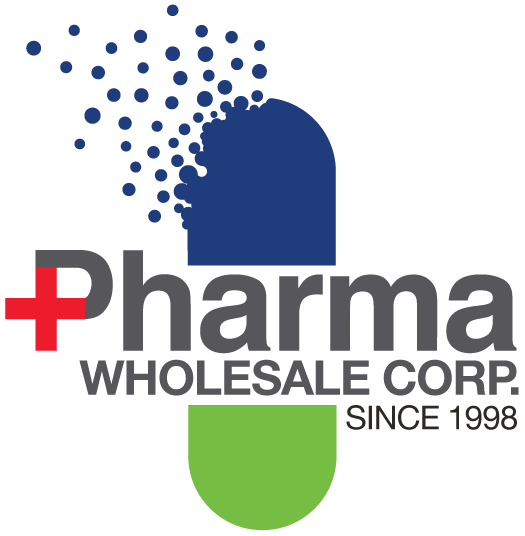Medical News Today Article By Corrie Pelc on November 1, 2023 — Fact checked by Patricia Weiser, PharmD
About 5 million peopleTrusted Source around the world have ulcerative colitis — a chronic inflammatory bowel disease.
There is currently no cure for ulcerative colitis. The symptoms of the condition are normally treated through medications and possible surgery, as well as dietary changesTrusted Source.
On October 26th, the Food and Drug Administration (FDA) approved a new medication for treating moderately to severely active ulcerative colitis in adults.
Called Omvoh™ (mirikizumab-mrkz), the drug made by Eli Lilly and Company is the first and only interleukin-23p19Trusted Source (IL-23p19) antagonist for the treatment of this condition.
FDA approves Omvoh for treating ulcerative colitis
Mirikizumab — which was recently approved under the brand name Omvoh — is an interleukin-23p19 antagonist. The first three doses of the drug are administered by intravenous infusion, followed by subcutaneous injections administered once every four weeks.
Over-activation of the IL-23 pathwayTrusted Source plays an important role in inflammation in ulcerative colitis. This medication works by targeting only the p19 subunit of IL-23 and stops the IL-23 pathway.
“Mirikizumab is the first antibody targeting p19/interleukin-23 to be approved for the treatment of ulcerative colitis,” said Dr. Bruce Sands, chief of the Dr. Henry D. Janowitz Division of Gastroenterology at the Mount Sinai Health System, and senior author of the clinical trial, and a paid consultant for Lilly USA, LLC. “Its performance in both induction and maintenance phases of the clinical trials is truly impressive.”
The FDA’s approval of Omvoh was based on results from two phase 3 clinical trials published in June 2023.
After 12 weeks of receiving Omvoh, researchers found that 65% of study participants achieved clinical response and 24% achieved clinical remission compared to placebo. And among those who achieved clinical remission at 12 weeks, about 66% of those participants maintained it through one year of continuous treatment compared to placebo.
Researchers reported the most common side effects of Omvoh were upper respiratory infections, injection site reactions, arthralgia, rash, headache, and herpes viral infection. The drug’s labeling contains warnings related to the risks of allergic reactions and infections, as well as precautions for those with tuberculosis or hepatotoxicityTrusted Source. In addition, individuals treated with Omvoh should avoid live vaccines.
Mirikizumab reduced ulcerative colitis symptoms
Additionally, study participants also experienced a decline in bowel urgency and rectal bleeding as early as three weeks into treatment.
“The Lucent program was the first clinical trial program that addressed bowel urgency in a meaningful way,” explains Dr. Marla C. Dubinsky, co-director of the Susan and Leonard Feinstein Inflammatory Bowel Disease Clinical Center and professor of pediatrics and medicine at Icahn Mount Sinai, and co-author of published phase 3 clinical trials. “It is one of the most burdensome patient-reported symptoms, and a drug that achieves bowel urgency remission is an outcome of great importance to our patients with ulcerative colitis.”
“I see many people with ulcerative colitis who previously tried other biologic treatments, and they are still searching for an effective option that can offer rapid and lasting improvements. [This] approval represents a novel scientific advancement, providing a treatment that may offer relief from three key symptoms — stool frequency, rectal bleeding, and bowel urgency — regardless of past biologic use.”
– Dr. Bruce Sands, senior author of the clinical trial
What is ulcerative colitis?
Ulcerative colitis is a type of inflammatory bowel disease (IBD). It causes inflammation and ulcers, or sores, in the large intestine.
Symptoms range from mild to severe with periods of worsening symptoms — called flares — and diminished symptoms — called remission — occurring over time.
Common symptoms of ulcerative colitis include:
- diarrhea
- bloody stools with mucus
- abdominal pain or cramping
- nausea
- inability to pass stools despite frequent urges
- rectal bleeding
- fatigue
- unintentional weight loss
- loss of appetite
- dehydration
While scientists still do not know the main cause of ulcerative colitis, they do know that certain factors include exposure to environmental factors like air pollutionTrusted Source, imbalance in the gut microbiomeTrusted Source, and immune systemTrusted Source issues.
GeneticsTrusted Source also play a role in ulcerative colitis, as well as age — it is most commonly found in people between the ages of 15 and 30Trusted Source — and ethnicity as Caucasians and those of Ashkenazi JewishTrusted Source descent are at a higher risk for developing the disease.
How is ulcerative colitis currently treated?
As there is currently no cure for ulcerative colitis, doctors prescribe treatments to help manage the symptoms of a flare and maintain remission once the symptoms have decreased.
Common medications used to treat ulcerative colitis include:
- aminosalicylatesTrusted Source to help decrease inflammation in the lining of the large intestine
- corticosteroidTrusted Source anti-inflammatory medications to treat flares and more severe cases of the disease
- biologicsTrusted Source that target proteins made by the immune system and help with inflammation in the gut
- immunomodulatorsTrusted Source to help suppress the body’s immune system to help treat inflammation
- targeted synthetic small moleculesTrusted Source that target specific areas of the immune system to reduce inflammation
In certain cases, doctors may also suggest surgery such as a colectomy, proctocolectomy, or ileostomy.
New medications for ulcerative colitis
Over the last few years, there has been a flurry of new medications for ulcerative colitis.
Earlier this month, the U.S. FDA approved an oral selective sphingosine-1-phosphateTrusted Source (S1P) receptor modulator called Velsipity™ (etrasimod) for treating adults with moderately to severely active ulcerative colitis.
In August 2023, pharmaceutical company AbbVie applied for a new ulcerative colitis indication for its Skyrizi® (risankizumab) interleukin-23 (IL-23) inhibitorTrusted Source, which is currently approved for use in the U.S. and Europe for the treatment of plaque psoriasis, psoriatic arthritis, and Crohn’s disease.
AbbVie did receive U.S. FDA approval in March 2022 for its Rinvoq® (upadacitinib) for the treatment of adults with moderately to severely active ulcerative colitis who have had an inadequate response or intolerance to one or more tumor necrosis factorTrusted Source (TNF) blockers.
And there are more potential ulcerative colitis therapies on the horizon, including cobitolimod for the treatment of moderate-to-severe left-sided ulcerative colitis, which is currently in phase 3 clinical trials, and a micro-RNA-124 (miR-124) upregulatorTrusted Source called obefazimod that is also in phase 3 clinical trials.
More treatment options needed
Dr. Glenn S. Parker, president of the medical staff and vice chairman and chief of colon and rectal surgery at Jersey Shore University Medical Center, told Medical News Today that Omvoh in the two clinical trials was shown to be safe with adverse events to be consistent with other biologic agents used in the treatment of ulcerative colitis.
“The Lucent program is the first clinical trial to address bowel urgency as a debilitating symptom which was tremendously improved,” he continued. “Continuing to follow the data will hopefully result in rapid relief of symptoms, long-term remission, and improve the quality of life for our patients.”
MNT also spoke with Dr. Rudolph Bedford, a gastroenterologist at Providence Saint John’s Health Center in Santa Monica, CA, who said there has been a plethora of new drugs coming out over the last five years, and it’s always exciting to have more options.
He said as doctors are currently using traditional TNF-type medications, they are finding they may not work for all people with ulcerative colitis.
“It’s good that we have more treatment options and can also individualize patients with various treatments that they may respond to versus others that they may not,” Dr. Bedford explained. “(This) is a new way of targeting the antibodies that can cause ulcerative colitis — it’s another mechanistic way of (helping) patients with moderately to severely-active ulcerative colitis.”

